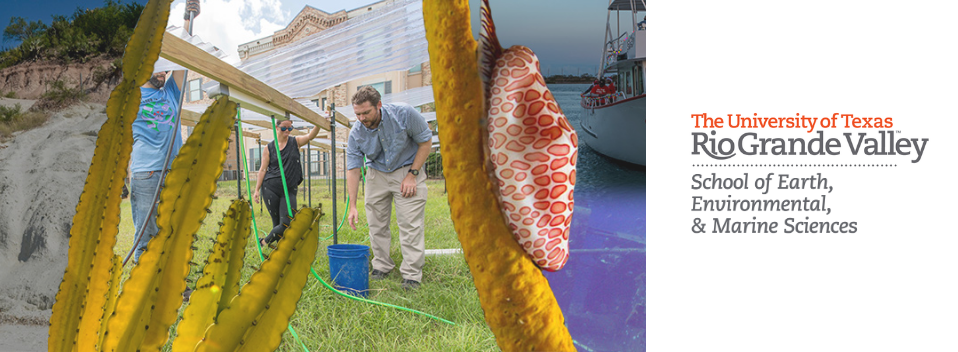
School of Earth, Environmental, & Marine Sciences Faculty Publications
Impacts of anthropogenic contaminants and elevated temperature on prevalence and proliferation of Escherichia coli in the wild-caught American oyster, Crassostrea virginica in the southern Gulf of Mexico coast
Document Type
Article
Publication Date
4-13-2022
Abstract
Escherichia coli is one of the most common indicators of environmental contamination and health risk to aquatic organisms including shellfish. E. coli can adapt to various stress conditions (e.g. heat, pollution, acidification, etc.). American oyster, Crassostrea virginica, a marine bivalve mollusc, is a seafood popular due to its delicacy and high nutritional value. Based on increasing concern about global warming, coastal pollution and microbial contamination in live or raw seafood, the present study focused on the detection and enumeration of the bacterial pathogen E. coli in the American oyster in south Texas waters, and in controlled laboratory heat-exposure conditions. Immunohistochemical, reverse transcription-polymerase chain reaction (RT-PCR) and quantitative real-time PCR (qRT-PCR) analyses showed substantial bacterial pathogen presence in the gills and digestive glands of oysters collected from polluted sites in San Martin Lake and South Padre Island on the southern Gulf coast of Texas. Laboratory heat-exposure studies showed an increasing trend of E. coli protein and mRNA expression in gills and digestive glands in elevated temperatures (28°C and 32°C) compared with control (24°C) and reduced integrated protein density of E. coli in gills at high temperature. Biochemical analyses were also performed to examine the extrapallial fluid (EPF, an integral body fluid) conditions in oysters. EPF glucose levels, pH and protein concentration varied at high temperatures and appeared to be pertinent to pathogen intensity in oysters. Collectively, these results suggest that American oyster is prone to waterborne pathogen contamination in the southern Gulf of Mexico coast, and E. coli proliferation escalates at rising sea surface temperatures.
Recommended Citation
Maruf Billah, Mohammad, and Md Saydur Rahman. "Impacts of anthropogenic contaminants and elevated temperature on prevalence and proliferation of Escherichia coli in the wild-caught American oyster, Crassostrea virginica in the southern Gulf of Mexico coast." Marine Biology Research 17, no. 9-10 (2021): 775-793. https://doi.org/10.1080/17451000.2022.2053161
Publication Title
Marine Biology Research
DOI
https://doi.org/10.1080/17451000.2022.2053161


Comments
© 2022 Informa UK Limited, trading as Taylor & Francis Group.
https://www.tandfonline.com/share/TG57SATHWCCP4FHBKWUT?target=10.1080/17451000.2022.2053161